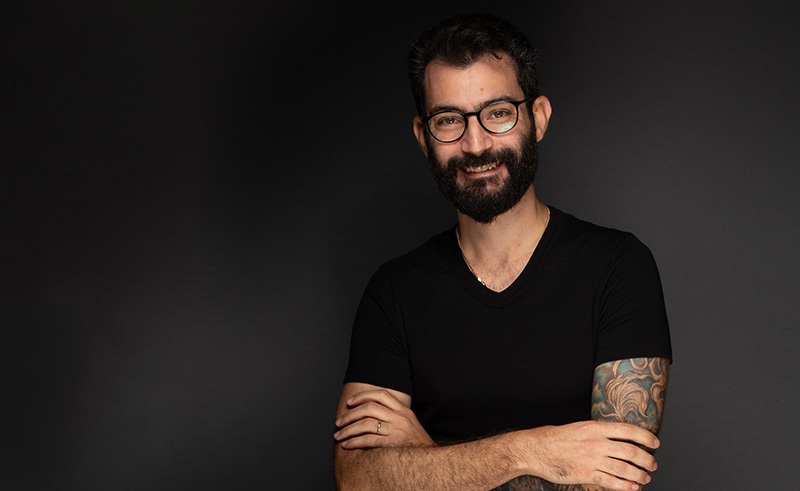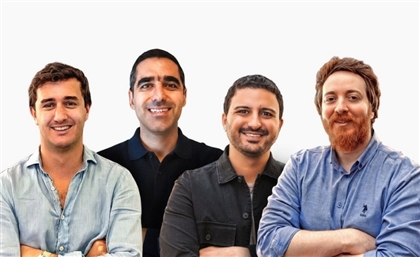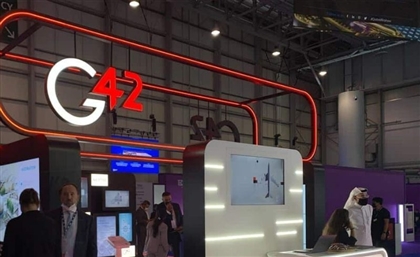How Shaffra is Bringing the Workplace of the Middle East to the Future
Founded to be a crypto exchange platform in 2022, Shaffra pivoted to provide cost-effective solutions to virtual work.

UAE based technology startup Shaffra is using AI and the metaverse to change the way people work in the Middle East. From creating immersive platforms to developing AI tools and an AI workforce, Shaffra is shaping the digital era of work and bringing it to the future.
Founded in 2022, the idea of Shaffra, which means ‘’code’’ in Arabic, was initially a crypto exchange platform. At the time, crypto was booming and numerous exchange platforms were emerging in the region. But as the founders were trying to find cost-effective solutions to work collaboratively yet virtually, they pivoted their startup idea.
“While we were close to finalizing our business model, we started thinking about how we’re going to be efficient in our cost, and save on our overheads,” Alfred Manasseh, one of three Co-Founders of Shaffra, tells StartupScene. “So, we started looking into different virtual offices, different workplaces and we couldn’t find a proper solution. Our tech co-founder said that he could build a virtual office with all the infrastructure and interaction tools that are needed. That’s how our business came about.”
Since launching, Shaffra has been providing its metaverse and AI services to government entities and companies in the UAE, Saudi Arabia, and Oman. It plans to expand to the rest of the GCC and MENA region within the next few years.
GETTING STARTED
Shaffra’s journey was far from easy. Its idea was new and unheard of at the time, particularly for investors, who were reluctant to deploy money in the startup in its early days.
“We probably pitched our idea to thousands of investors, and we got turned down a lot of times, until we got a breakthrough with Flat6Labs,” Manasseh shares.
It was then that Shaffra built its MVP with the funding it received from Flat6Labs UAE and got its first client, The Abu Dhabi Department of Culture and Tourism. Soon afterwards, the startup began attracting investor interest in Saudi Arabia. Impressed with its finished product, investors saw an opportunity to tap into digital workplace solutions. To date, Shaffra has 22 angel investors from Saudi Arabia.
“Saudi Arabia was not on our radar,” he says. “It was the UAE and purely the UAE market that we were focused on, especially since it had a metaverse strategy, the 2030 vision of being the AI and the blockchain city of the world.”
The potential of the metaverse seems to be alive and well. The UAE and Saudi Arabia have launched several metaverse initiatives, including the Dubai Metaverse Strategy, which could bring in $4 billion to the economy, and Saudi Arabia’s Neom project, which has a metaverse component that is already being used to develop the city. According to a PwC report, the metaverse could contribute $15 billion into GCC economies by 2030.
BEYOND THE METAVERSE HYPE
While Shaffra may have gained traction during the metaverse hype, which took the world by storm in late 2021, it changed direction soon after the boom waned.
Since the startup was using a lot of AI tools since its founding, it began leveraging this technology to create new types of products and services. This includes immersive platforms where people can work and collaborate effectively, AI tools to help with streamlining operations, like filtering candidates for job applications, and an AI workforce, such as AI assistants to support with crafting emails, organizing schedules, and managing documents.
“What we're doing is reengineering the way companies work today, and we're doing that with emerging technology,” he says. “We're building template workforces. So, you'll have the recruiter, the assistant, the accountant, the office manager, and the sales coordinator. So, eventually you would be able to build your workforce based on AI.”
That’s not to say, however, that AI will replace jobs entirely. According to Manasseh, the people who know how to use AI will replace those who don’t. “As human beings, I think our strength is our creativity and our critical thinking,” he says. “And that's where our focus should be, not in terms of the repetitive and mundane tasks.”
It is through these elements that the metaverse is brought back to life, according to Manasseh. He believes that the metaverse is ultimately a platform where people and AI can interact and work together effectively. The image of the game-like virtual world where users wear VR goggles is outdated. “The metaverse doesn't necessarily need to be a 3D or virtual environment like everybody perceives it,” he explains. “It's a place where you are immersed in one way or another, and where humans and AIs are actually communicating, conversing and working together to create a more efficient workflow. So, the metaverse is not dead. The way the metaverse was portrayed is dead. But the potential of it is only starting.”
PROPELLING THE FUTURE OF WORK
Despite the startup’s forward thinking approach about work, getting more businesses and organizations on board has proven to be challenging.
“Everybody that hears about the metaverse or AI loves the idea, but they say it’s a technology of the future,” Manasseh says. “However, it is a technology of the future that can be beneficial at the present.”
The startup therefore resorts to educating users on the benefits of such technologies, and how they can be used by both individuals and organizations. It often conducts seminars, runs pilots, and connects with customers regularly to keep them updated on the company’s developments.
However, Manasseh is optimistic about the future. “I believe this will be resolved within a year, when most of our projects will be operational,” he says. “We will be able to really showcase clear value-added data to potential customers.”
Meanwhile, he is eager to continue reshaping the future of work in the Middle East and beyond. “We want to change the future of work,” he says. “We really see that the work should become more immersive and more engaging than what it is today.”






















